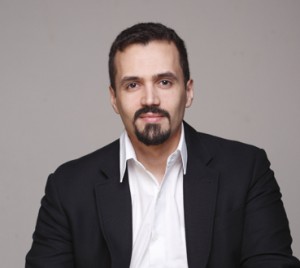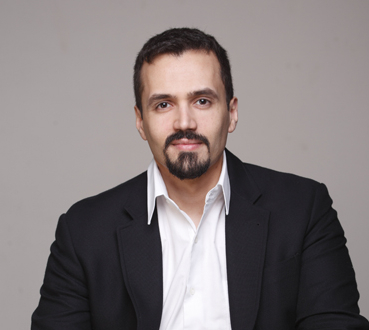
On 2 February 2011, I was in Tahrir Square and I left in the early afternoon to go home. Within a half hour of my leaving, camels, horses and thugs attacked Tahrir Square, resulting in more than a dozen deaths and hundreds wounded. That day is now etched into Egyptian revolutionary history as the Battle of the Camel – but back then, it was still “contested” as to who was responsible. That culture of “contestation,” where blame is thrown at the door of the victim, and the perpetrator is let off with a slap on the wrist, has manifested itself in every stage of Egypt’s transition, with almost all parts of society choosing to believe the official narrative. It is likely to continue, until a critical mass of Egyptians reject that narrative, and call for truly independent means of accountability.
During the night of 2 February, I was, as many others were, patrolling my streets in the ‘popular committees’ to defend my neighbourhood. I heard of the first causality – a young boy of eight years old, who was there simply because his father took him to see what a free and pluralistic Egypt could like, in an open, public square, in the centre of his country’s capital. My first reaction was sorrow – the reaction of one of my fellow patrollers was quite different. “What was he doing there?” he exclaimed. “His father should bear the blame!” For him, the state was inviolable – in terms of its narrative, but also in terms of questioning. If you did question it, then you deserved what you got – such is the trauma of living under a police state for too long, where independent means of accountability are absent. The narrative of the state was that these protesters were chaotic, had weapons, raped women (all untrue) – why wouldn’t you excuse those who attacked the square?
Of course, now we do not question who was a martyr and who was in the wrong that day. But it did not end with the downfall of Mubarak. Eight months later, protesters marched from Shubra in Cairo to Maspero, where the state media building is located. It was an entirely peaceful protest, composed of mostly Coptic but also Muslim Egyptians who were opposed to the rise in sectarianism in Egypt, and were calling for the end of military rule. The military responded with violence, and CNN broadcast images of armoured personnel carriers crushing protesters to death, with soldiers firing at the protesters. In the ensuing reports, Human Rights Watch called for an independent investigation, while noting that the violence left two dozen protesters and bystanders and at least one military officer dead.
National TV covered the protests while they were going on– but with something of a twist. They reported the deaths of three soldiers, rather than the protesters whom they claimed were armed, and called upon ‘all noble Egyptian patriots’ to protect the military. Rumours spread like wildfire that the protesters were armed and had attacked the military. The Muslim Brotherhood itself refused to ‘blame any entity’, including the military, blaming instead former regime remnants of Mubarak for instigating the violence – similar to state media. Of course, at the time, the Brotherhood was trying to build good relations with the military. Again, similar to the Battle of the Camel, it was a small community of civil rights groups and revolutionary activists that poured scorn on the official narrative and demanded independent accountability. Unlike the Battle of the Camel, the official narrative stayed the same when it came to Maspero.
After Mohammed Morsi became president, the first major crisis he faced was after he issued a decree declaring his decisions temporarily beyond judicial review. In response, major protests erupted, resulting in heavy clashes and nine deaths (on both sides), on 5 December 2012 when his supporters forcefully dispersed an opposition sit-in at the presidential palace. The official narrative, issued by then president Morsi, and propagated by the Brotherhood was that the violence was stirred up by “paid thugs”, and protests were non-representative of the Egyptian population, with the secretary general of the Freedom and Justice Party insisting that 60% of the protesters at the palace were Christians. No evidence was provided for that narrative – but a substantial portion of the president’s supporters believed it.
Eyewitness testimonies, which never made it into the official narrative, suggested police officers and Morsi supporters cooperated in physically abusing detained protesters, including a former Egyptian diplomat. The Egyptian Initiative for Personal Rights and Human Rights Watch called for investigations into what happened – but as of now, no satisfactory conclusion has been reached. The official narrative was weakened, because opponents of the president were far more numerous than those that existed under Mubarak or Tantawi: but accountability and independent verification never took place. No one was convicted for the deaths of those involved.
Morsi is now gone – but the legacy of a lack of accountability and independent verification remains. Earlier this month, after state forces tried to disperse a sit-in front of a Republican Guard headquarters, dozens of unarmed pro-Morsi supporters were killed by live ammunition. The official narrative is that the facility was being attacked; that the sit-in was heavily armed; and that the security services acted with restraint and in self-defence. This narrative is being promulgated by much of the media, except for a smattering of independent media and foreign journalists. There’s certainly evidence of light, essentially handmade amateur weapons, but nothing that the security forces could not have repelled with non-lethal force: resulting in a successful dispersion of the sit-in, but without loss of life. Again, those spear-heading a call for independent accountability over what happened, that yet again left Egypt with more civilian, and innocent, deaths, are a smattering of journalists, and the civil rights community.
I mentioned the Republican Guard killings to a number of people I knew – and more often than not, the response was, “What were they doing there?” My wife reminded me – “isn’t that what that fellow said when you were patrolling back in February 2011?” She was right, although there is a critical difference between a protest in a public square and a sit-in at a military installation. Regardless, security forces have the responsibility to restrain themselves unless absolutely necessary – and it is as yet unclear, to say the least, that this was the case at the Republican Guard. Hence why many anti-Morsi personalities, such as Bassem Youssef and others, are calling for an independent and genuine investigation into what happened – even though they reject the cause of those protesters. The Brotherhood is, unsurprisingly, calling it a wilful massacre – and the irony between their calls vis-à-vis the Maspero killings in 2011, and their stances now, is there for many to see. Some argue that the Brotherhood might even want deaths in their protests, so as to evoke sympathy for their cause nationally and internationally – even if that were true (and I’m unconvinced it is), that does not mean such a desire should be obliged by the state.
There are other such instances that could be looked at: the clashes at the Cabinet in 2011, when many were killed, including Sheikh Emad Effat, the Mohamed Mahmoud deaths and others. The key takeaway ought to be that in 2011 – in 2012 – in 2013 – or whenever it takes place, no-one ought to be killed for simply being in a protest. Independent accountability is not a luxury in Egypt, or a privilege – it is a right, and it ought to be a primary demand for any genuinely patriotic force struggling for progressive and just change within this country. When one condemns violence in one circumstance to serve their own partisan end, but does not in another when it doesn’t serve that end, they are not simply hypocrites – they just condemn a part of their own soul. Egypt has had more than enough of that. She deserves better.



